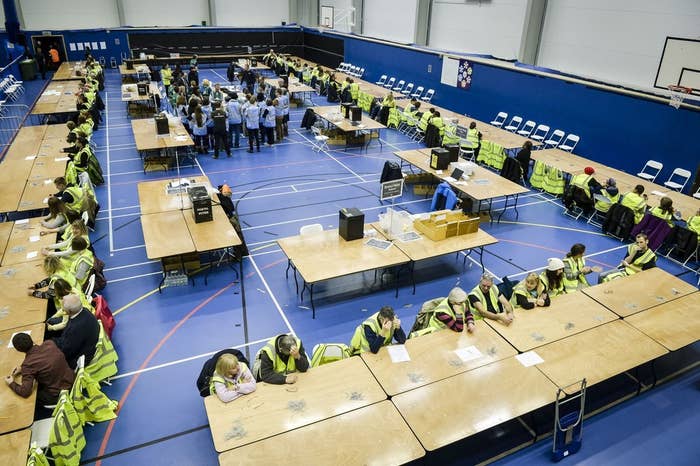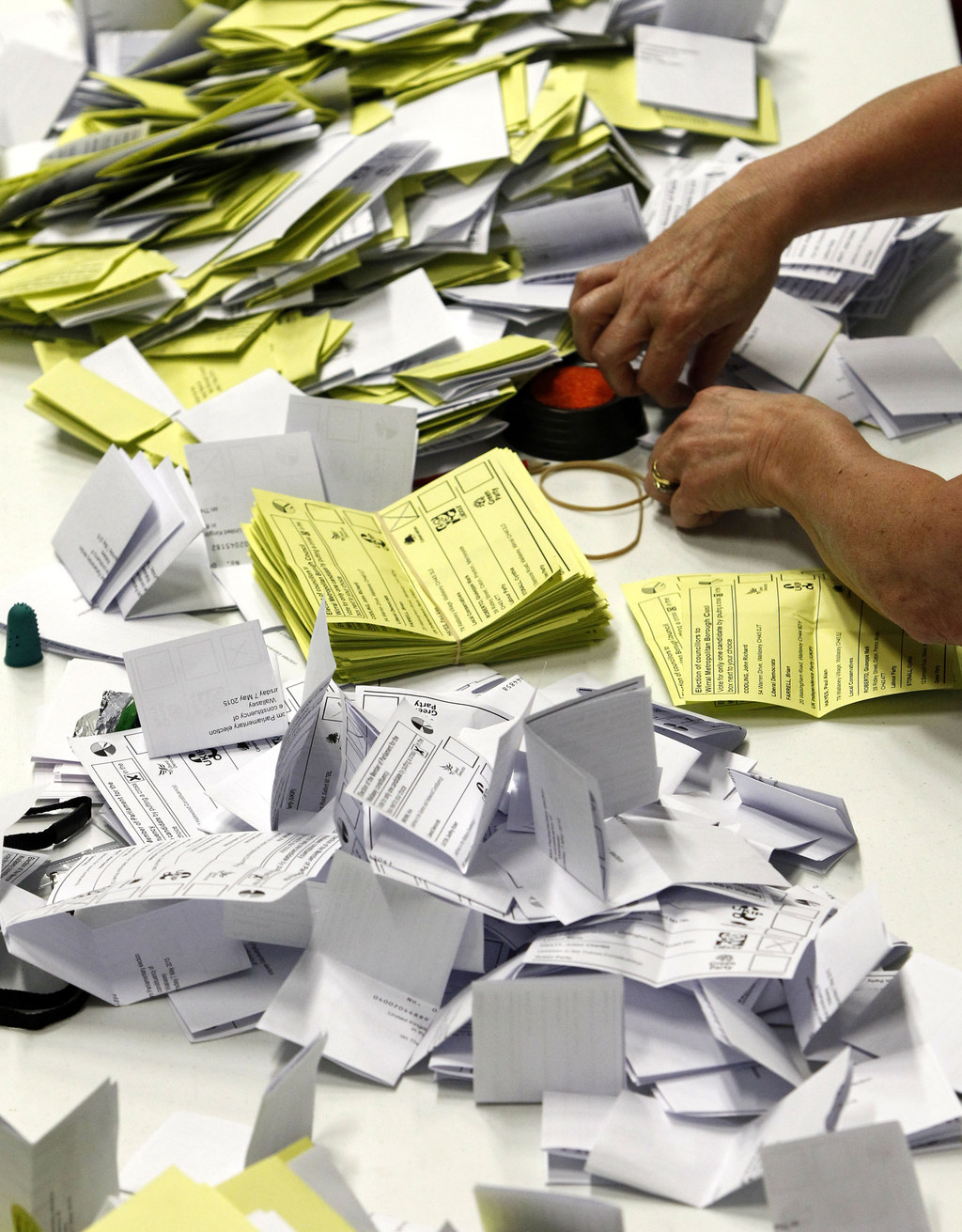
The exit polls say that the Tories have a huge and unexpected lead in the general election.
They suggest that David Cameron's Conservatives will win 316 seats while Labour will get just 239.
The poll was carried out on behalf of the BBC, Sky, and ITV, and released by them simultaneously.
Exit polls are a sample of how people voted.
People stand outside polling stations – 140 of them around the country. Pollsters at the stations ask a random selection of people, perhaps every 10th voter, to tell them who they voted for. Over the course of the day, the findings from those voters are collated in the pollsters' central office. They can't be released until the polls close at 10pm – but by then, the data has already been sifted, so all the information can be released at once.
They have significant advantages over the ordinary polls during the election campaign.
For one thing, they samplie people who've already voted, rather than people who say they'll vote. For another, they are often much larger samples than the rest of the polls. Tonight's exit poll asked around 22,000 people, compared to 6,000 for some of the later polls.
At the last two elections, they correctly predicted the number of seats won by the largest party. In 2010 and 2005 the exit polls got the number of seats the Conservatives and Labour won precisely right. However, in earlier elections, admittedly using a different system, they were wildly wrong: In 1992, the two exit polls, for the BBC and ITV, were 62 and 70 seats out. Five years later they were wrong by 29 and 21 seats.
But this election presents a special challenge.
Instead of a fairly straightforward Conservative–Labour fight, there are lots of fights between the main two parties and smaller ones, in various places around the country. That makes it much harder for pollsters, because the sample will be less representative of the country at large.
John Curtice, a professor of politics at Strathclyde University and one of the academics behind the exit poll, says that the poll could be vague, or wrong. "Prepare for disappointment," he told Bloomberg News. "It's almost guaranteed."
So there's still a long way to go before we know what's really happened.


